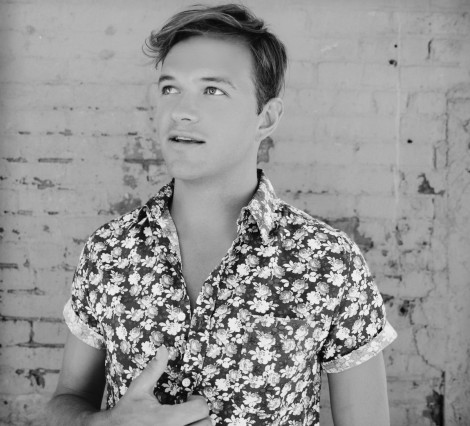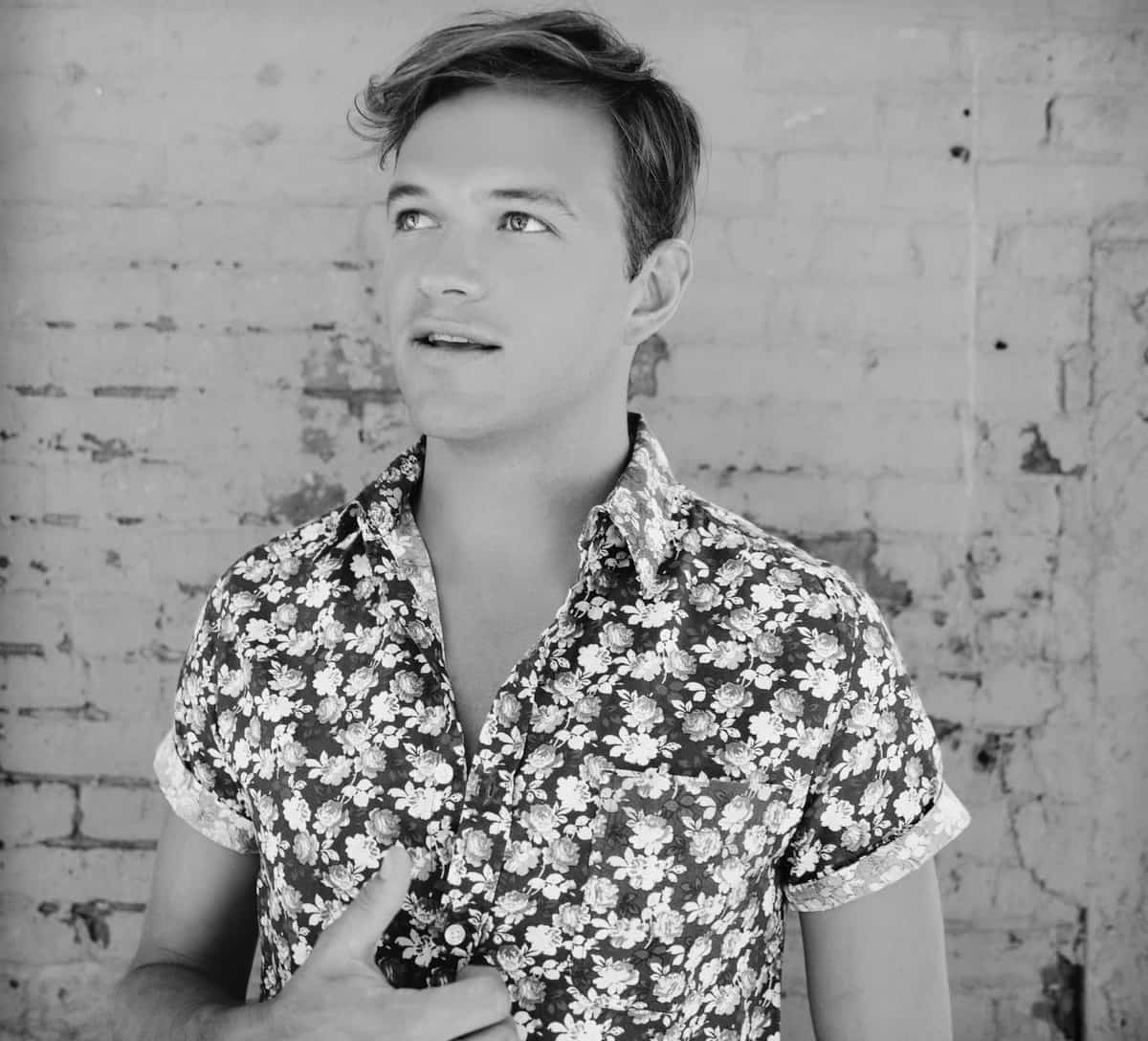South African native Jean-Philip Grobler is the do-all core of his Brooklyn-based project, St. Lucia. The electro-pop quintet returned to Toronto last Thursday in all their quasi-90s, synth-infused sparkle. Inspired by old school touchstones like Phil Collins and Michael Jackson, Grobler shared with The Varsity how he went from architecture to the aural artistry we know as St. Lucia, with some airborne ambitions in between.

St. Lucia’s Jean-Philip Grobler. MEDIA PHOTO
The Varsity: What was the first instrument that introduced you to music?
Jean-Philip Grobler: My mom says that I was singing before I could talk, so I guess it was my voice, if that counts. She would put my cot in front of a TV running the music video channel while she was making dinner, and apparently I was singing along to Michael Jackson and Lionel Richie, and I couldn’t even walk properly yet.
TV: What most inspires you for your songwriting?
JPG: It could be any number of things on any given day. Something that often works if I’m looking to get inspired is going to a bookshop with a coffee shop in it, specifically the one called McNally Jackson in New York, and sitting at a table drinking coffee and paging through design or interior design books and looking out of the window watching the world go by. Something about that moment, and the dimensions and layouts of the rooms or objects, gets my brain thinking about aural textures and melodies and all sorts of musical things. It could be anything, though: a movie, just walking down a street. It’s rarely music itself that inspires me directly for songwriting. I’ll very, very rarely hear a song which will then inspire me to go write something else. If it ever does, it will often just sound a lot like the song that inspired it. If a song does inspire me, it’ll often be weeks or months after hearing it, and I won’t realise it until later.
TV: When you first became involved in the composition process, what had the biggest learning curve for you (songwriting, arrangement, writing melodies, production, etc.)?
JPG: I’ve been writing music for a long, long time, probably since I was about 11. When I was doing it, I never thought, “Oh, I wish I knew how to write this or that better,” but the things that held me back were the technical aspect of things, like how to play this part on guitar or how to get this sound. I’d say that it was the production part of making music that had the biggest learning curve for me, and I also think that that was the most important thing for me to have learned about because in many ways it’s set me free. I don’t have to rely on a massive studio to do what I do.
TV: Was music always your biggest aspiration, or was there another childhood ambition you had?
JPG: As a child I was obsessed with Top Gun, and so all I wanted to do was be an F-14 Tomcat pilot. When I was in high school, at times there were other things, but they were normally things that I was thinking of because my parents or someone told me that I needed to fall back on something that was a “real” career or craft. Not that my parents weren’t always 100 per cent supportive of what I wanted to do, but my mother was involved in the entertainment industry in South Africa for my whole life, and so she saw the ins and outs. She just wanted to make me aware of how difficult it is, and she knew it from experience. So, there was a time when I was thinking of going into architecture or design, and even filmmaking for a little while. I always came back to music pretty quickly, though.
TV: How did being in New York influence your music, if at all? Do you feel like different cities and places have different sounds, and have you let moving around influence you as an artist?
JPG: Moving to New York influenced my music in a lot of different ways. The biggest thing it did for me was help me to find myself by losing myself first. I was pretty intimidated by the music scene when I first arrived, and so it took me a few years to get my bearings. My first band over here was a rock/indie project that I was working and doing shows with, in between my job as a jingle writer, but after a while the whole thing just started to feel like it had run its course. In retrospect, I think it was because I was daunted by the “coolness”and “knowingness” of the New York music community, which is something I felt like I didn’t have because I grew up in South Africa, where basically all I listened to was pop music until I discovered Radiohead at the age of 14. Even then, I thought that Radiohead was pretty much the most underground band in the world until I moved to the UK and started discovering all these other bands like My Bloody Valentine. So to move to New York and be surrounded by so many people who had a zillion “cooler” influences than me made me cower in the corner. I always wanted to be taken seriously as a musician, and in a way that made me think that I never could be because I would never be as clued up about music as all of these other people. As this was all happening, I, for some reason, started listening back to all of the music I listened to as a child, like Phil Collins, Lionel Richie, Michael Jackson, and a whole bunch of African and world music, and it felt just so refreshing and inspiring to me. After a while, that just started feeding into the music I was making, and I stopped trying to make something that was difficult or that wasn’t just exactly who I am.
TV: Is there anyone in the music industry today that you’re particularly impressed with?
JPG: I have to say I’ve been ceaselessly impressed with the Haim girls. Pretty much everything they’ve done has been pulled off with so much class, and there’s nothing “trying too hard” or exhausting about them. It’s rare that I like a band that is getting as much hype as they are.
TV: Who are some of the artists top-played on your iPod and do you let them influence you at all?
JPG: Anything that I listen to a lot is going to influence me in some way. Over the last year or so, I’ll have to admit somewhat embarrassingly that the top-played artist is St. Lucia, just because I’m constantly working on new stuff and checking this and that. But other than me, I really loved the Rhye album, the new Kurt Vile album, the new Empire of the Sun album, the CHVRCHES and Haim albums, but I think the one I’ve listened to the most has been John Wizards, a band from South Africa. If you haven’t heard of them, you should check them out. This word is thrown around a lot, but it really is life affirming in all the best ways.
TV: Are you entirely content with what you’ve achieved with St. Lucia, or is there somewhere further you’d like to take it? Are there any instruments you haven’t integrated into your sound that you’d like to experiment with?
JPG: I’m absolutely content with what we’ve achieved so far. This project isn’t just me; it’s a whole team of people that helps to get things done, and I’m incredibly happy with the team my wife Patti [the keyboardist in St. Lucia] and I have put together. I’m really proud of the album we put out, and it was made in some fairly tough circumstances between touring and more or less by myself, but I still listen to it a lot up to this day, which I think means something. Of course, there is always more to explore; otherwise, what would be the point? I’m constantly changing as a person, the world is changing around me, and I like to move with that and see myself in relation to that. In terms of instruments I haven’t used yet, pretty much anything that I haven’t used yet in some way I’d like to find a way to integrate into our sound. There’s a brand new song I’m working on that has pan-flute in it, so you never know.
TV: What does your “creative process” look like?
JPG: It’s very much an intuitive process. I’ll normally come up with an idea when I’m doing something completely unrelated to music and normally record it with my phone’s voice recorder. Then, when I have some time in the van or in my studio, I’ll cycle through the ideas and find one that inspires me and start working on that. From there, it’s literally just record every idea that comes into my head until there are no more ideas or I’m tired or uninspired, and then I’ll take a break for a day or week or a few months. The process continues like that until I obviously have way too many things going on, and then the process of editing begins. I just keep doing whatever it takes to make me feel good about a song until it reflects my original vision for the song.


